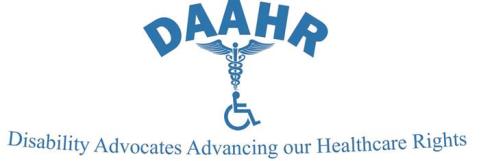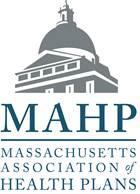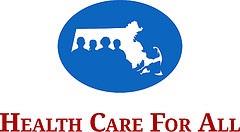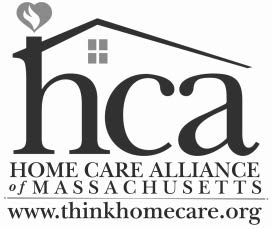




.jpg)
Secretary Marylou Sudders
Executive Office of Health and Human Services
One Ashburton Place, 11th Floor
Boston, MA 02108
Dear Secretary Sudders:
On behalf of a broad coalition of organizations representing patients, advocates, providers, and payers, we are writing to share our concerns regarding the state’s preliminary request to the Centers for Medicare and Medicaid Services (CMS) for changes to the financing model for the Dual
Eligible programs. We request that the state provide for a comprehensive stakeholder engagement process to share your goals and recommended programmatic changes with, and to accept feedback from, all of the relevant stakeholders. We further ask that this process begin prior to the state formally issuing its
draft Waiver amendment request for Dual Eligible programs.
Our collective organizations have supported the existing Massachusetts models for caring for dual eligible seniors and individuals with disabilities. These are innovative and flexible models that are designed to meet the unique needs of patients, improve their overall health and well-being,
and achieve cost savings for the state based on providing services to members at the right time and in the right setting. Integrated care programs, like the Senior Care Options (SCO) and OneCare programs, result in better quality of care and better outcomes for dually eligible beneficiaries. While achieving
savings through care coordination, enhanced efficiencies and flexibility is an area in which we agree, our collective organizations share significant concerns with the proposed changes to the financing structure for the Massachusetts dual-eligible programs.
The Massachusetts Dual Eligible programs were initially developed with broad stakeholder participation and engagement and through that collaboration, the programs have succeeded in providing high quality and comprehensive services that meet the needs of the members they serve. As
MassHealth contemplates changes to these programs, it is crucial for the state to continue this culture of collaboration and work closely with all of the relevant stakeholders representing patients, advocates, providers, and payers. Currently, there is limited information available to enable us to effectively
evaluate the potential impact that the proposed changes will have on the programs. It is critical that we have an understanding of how the changes to the financial model that are now under consideration will affect members, providers, and health plans. Any new model must ensure that patient choice and
access to comprehensive services remains a priority. Related, it will be critical to create an environment that promotes robust participation of healthcare providers and plans in these innovative models.
Given the current fiscal challenges facing the state, we would like to understand how state and federal dollars that are now directed to these programs will be used. It would be very concerning if the new model would permit changes to the level of benefits that are offered today. How the
proposed financial model would affect providers and health plans must also be understood with the goal that such changes will attract and not deter participation.
The dual population experiences more significant and acute health issues including frailty, multiple chronic conditions, social determinants of health, and behavioral health conditions. Such conditions often lead to unexpected medical costs which present concerns in any model in which
the federal government would defer its responsibility to the state through a capitated payment process. If the federal government were not to adequately compensate states for these costs, the risk would then fall to the state and subsequently would affect patients, providers and health plans. As we saw in the OneCare
program, failure to adequately estimate costs for these complex populations can lead to deep financial losses for payers and uncertainty for members. We appreciated that both the state and federal government were active in reevaluating the OneCare finances in 2015. We would like to understand how any
proposal put forward plans to address this risk and ensure that the program remains fully and sufficiently funded.
For these reasons, we want to meet collectively with you as a community to hear each other’s feedback and recommendations for how help meet your goals while addressing our concerns. We therefore request that the administration convene a stakeholder engagement process prior to forming any
agreement with CMS and prior to issuing a formal draft Waiver Amendment Request of the OneCare and SCO programs.
We appreciate the commonwealth’s support of dual-eligible programs and the goals of growing the program, providing administrative flexibility, and seeking greater efficiencies, and we are committed to working collectively on solutions to help us all meet these goals. We look forward to
hearing from you and beginning this conversation.
Sincerely,
Amy Rosenthal
Executive Director
Health Care For All
Henry L. Dorkin, MD
President
Massachusetts Medical Society
Patricia Kelleher
Executive Director
Home Care Alliance of Massachusetts
Bill Henning and Dennis Heaphy
Co-chairs
Disability Advocates Advancing Our Healthcare Rights
David Matteodo
Executive Director
Massachusetts Association of Behavioral Health Systems
Lynn Nicholas, FACHE
President & CEO
Massachusetts Health & Hospital Association
Lora Pellegrini, Esq.
President and CEO
Massachusetts Association of Health Plans
